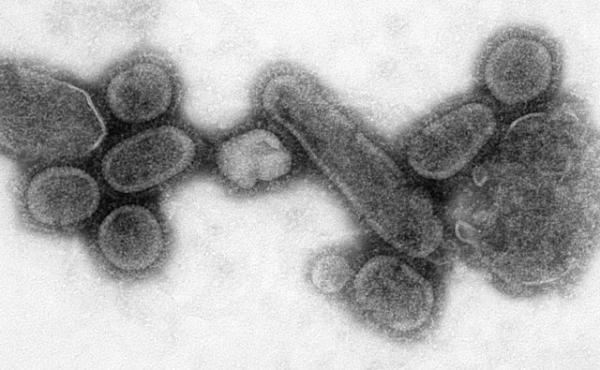
It is bad enough when unqualified pundits offer dumb opinions about science, but bad legislation can cause real damage. The COVID pandemic has given rise to some real legislative doozies from politicians at both the state and federal levels.
I’ve written, for example, about a proposed Idaho bill that would make it a misdemeanor to "provide or administer a vaccine developed using messenger ribonucleic acid [mRNA] technology for use in an individual or any other mammal in this state.” As bizarre as it seems, administering an FDA- or USDA-approved vaccine to prevent a potentially lethal disease would be a crime.
Then there was U.S. Senator J.D. Vance (R-OH), who introduced legislation prohibiting federal mask mandates from being imposed in the U.S. The Freedom to Breathe Act, which would apply through the end of 2024, “would prohibit any federal official, including the President, from issuing mask mandates applying to domestic air travel, public transit systems, or primary, secondary, and post-secondary schools,” according to the senator’s office.
The rationale? According to Vance, “We tried mask mandates once in this country. They failed to control the spread of respiratory viruses, violated basic bodily freedom, and set our fellow citizens against one another.” That’s like saying that because masks and handwashing in hospital operating rooms fail to prevent all intraoperative infections, mandating them should be prohibited. The logic is flawed. And as for sowing divisiveness, such absurd pseudo-libertarian legislative proposals go a long way toward that.
Earlier this month, Texas Governor Greg Abbott signed legislation that imposes a sweeping ban on COVID-19 vaccine mandates for all private businesses. It provides no exceptions for doctors’ offices, clinics, or other health facilities and has been described as "the latest blow to medically vulnerable Texans who rely on others’ immunization to shield themselves from highly transmissible viruses." Cancer patients are especially vulnerable to infectious diseases. In 2022, Texas' M.D. Anderson Cancer Network alone had 175,719 patients, who accounted for 1.6 million outpatient visits. It is unthinkable that M.D. Anderson can no longer require that its employees be vaccinated to prevent COVID-19.
“Gain-of-function” (GOF) research
The most recent ill-conceived policy proposal came from the U.S. House of Representatives, which on November 14 approved an insidious amendment to the 2024 spending bill for the Department of Health and Human Services (HHS), the parent agency of the National Institutes of Health (NIH). It would ban federal funding for “gain-of-function” (GOF) research that modifies high-risk pathogens in ways that can make them more harmful. However, the authors of the bill, Representatives Thomas Massie (R-KY) and Mariannette Miller-Meeks (R-IA), may have misunderstood the potentially broad interpretation of “gain of function,” which simply means an organism has acquired a new or enhanced property, and the importance of such research.
GOF experimentation intended to increase the transmissibility and/or virulence of pathogens usually aims to improve understanding of disease-causing agents, their interaction with human hosts, and/or their potential to spread and cause pandemics. The ultimate objective is to better inform public health preparedness efforts and the development of medical countermeasures, so it is beneficial.
But the vaguely worded provision in the House bill could unintentionally prevent important research, such as improved vaccines to prevent flu, COVID-19, respiratory syncytial virus (RSV), or other infections that could lead to pandemics. It could even be interpreted to prevent funding work on genetically engineered bacteria similar to the E.coli that are the source of human insulin, or to the E. coli that can digest polyethylene terephthalate (PET) plastics and transform them into adipic acid – a valuable feedstock for nylon materials, drugs, and fragrances.
The amendment was probably spurred by speculation that the original Wuhan variant of the SARS-CoV-2 virus, which causes COVID-19, was the product of genetic manipulation in a Chinese laboratory and was accidentally released. GOF modifications to create, for example, new, deadly, antibiotic-resistant bacterial pathogens or hyper-virulent viruses that could be used for nefarious purposes are already prohibited by international agreements. Specifically, their “development, production, acquisition, transfer, stockpiling and use of biological and toxin weapons" are proscribed by the Biological Weapons Convention (BWC), which entered into force in 1975, supplementing the Geneva Convention of 1925. The United States is a signatory of both.
Thus, developing organisms to be used as biological weapons is already prohibited, and research with organisms capable of causing disease outbreaks is subject to appropriate, tiered laboratory biosafety precautions.
What is especially disappointing about the Massie and Miller-Meeks GOF amendment to the HHS spending bill is that the two sponsors should know better about the possible unintended consequences of their amendment. Rep. Massie has two engineering degrees from MIT, and Rep. Miller-Meeks is an ophthalmologist.
It is unclear whether the GOF provision will survive, given the partisan divide between the Republican-led House and the Democratic-controlled Senate, which has not yet voted on its version of the HHS spending bill.
However it happens, we can only hope that cooler heads will consider the scientific imperatives and dump the GOF restrictions on research funding.
An earlier version of this article was published in the Washington Examiner.



